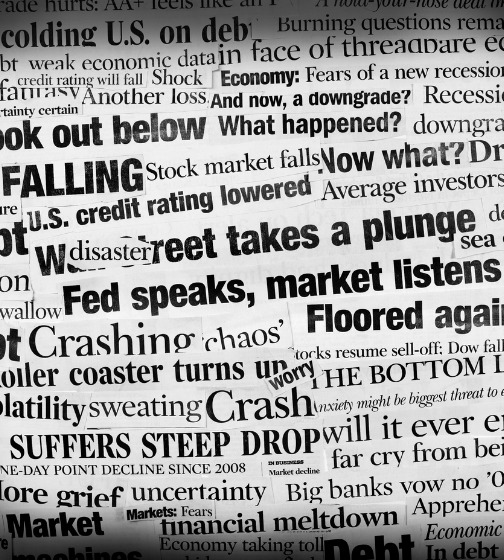Investment managers continue to pull back from stocks amid concerns about the impact of higher inflation, rising interest rates, China’s ‘Covid zero’ strategy and the war between Russia and Ukraine. 
Inflation had been climbing for some time because of post-pandemic supply bottlenecks but Russia’s invasion of Ukraine – and the following sanctions from the international community – added to inflationary pressures by causing a surge in commodity prices.
Meanwhile, the Federal Reserve, the Bank of England and other major central banks are attempting to tackle inflation by lifting interest rates from the historic lows that they had sat at for much of the past decade, spooking investors.
In addition, the Covid-19 pandemic is still causing problems – most notably in China, where authorities have re-imposed lockdowns to quash a resurgence in cases but increased the risk of a slowdown in the world’s second largest economy.
Performance of markets over 2022 to date

Source: FE Analytics. Total return in sterling between 1 Jan 2022 and 1 Jun 2022
All of the above has caused markets to endure a broad-based sell-off in recent months and contributed to a sense of nervousness among fund management houses.
Luca Paolini, chief strategist at Pictet Asset Management, said: “Inflation. War. Covid. They’re each taking their toll on investors’ nerves.
“This pernicious combination of rising real interest rates and worries about how the global economy will cope with a shortage of fossil fuels and other commodities weighs heavily on the outlook for equities.
“As a result we have downgraded the asset class to underweight, and upgraded cash to overweight – we await confirmation that inflation and bond yields have peaked before re-allocating to fixed income.”
Pictet’s current asset allocation

Source: Pictet Asset Management
Paolini added that while a “double-whammy” of tightening financial conditions and slowing economic growth is bad for equities in general, it is particularly negative for cyclical stocks.
Despite their recent underperformance, cyclical stocks’ premium relative to defensive sectors is still only at neutral levels, the strategist noted, which suggests the market is pricing in either a ‘soft landing’ for the economy or a swift return of GDP growth to trend levels. Pictet has trimmed cyclical exposure as neither of these outcomes are a certainty, leaving “ample room” for cyclical stocks to continue underperforming.
Within cyclicals, the financial sector looks “increasingly vulnerable”, Paolini said.
“Until recently, it seemed that higher interest rates would boost banks’ lending margins and, in turn, their overall profitability. Now, however, they appear more susceptible to weaker economic growth and we believe financials will struggle at this stage of the cycle.
“Bond yields are unlikely to rise much further while banks’ profit margins are likely to have peaked. And even though financial stocks’ valuations are still attractive, they are not as low as they were a year ago.”
He suggested there were better opportunities in materials and healthcare stocks, as companies in these sectors tend to have the ability to defend their profit margins. What’s more, materials are a ‘value’ sector, which Pictet expects will hold up better than growth over the near term, while healthcare stocks tend to show more ‘quality’ attributes, which make them attractive in uncertain market conditions.
On a geographic basis, the asset management house remains cautious on the US – pointing out that it is still an expensive market and one that that is heavily skewed towards tech stocks, which are one of the sectors that suffer the most in a rising rate environment.
It is more positive on European equities, “where the economy is at an earlier stage of the cycle and where fiscal policy is more accommodating”, and the UK, thanks to the market’s “distinctive” weighting to value sectors that are expected to hold up in inflationary conditions.
Pictet is not the only fund management firm to have shifted to a pessimistic stance on stocks, with Fidelity’s multi-asset team holding an underweight on the asset class.
“Markets have been consistently weak for some time now and we are mindful that a bout of short covering could lead to a sharp move on little or no news,” the team said.
“However, the near-term risks of high inflation, hawkish central banks, weakening consumer and industrial confidence and the Covid lockdowns in China, lead us to maintain our cautious view on risk assets. We are positioned underweight equities and credit as a result.”
But it has a different view to Pictet on where the best opportunities can be found.
Fidelity’s multi-asset team prefers the US, for example, saying the country is more insulated from the commodity shocks and has safe-haven characteristics. It is sanguine on US valuations, noting that the recent correction has brought the US price-to-earnings ratio to around the level it has averaged for the past five to 10 years.
Meanwhile, it is underweight European stocks because of a heightened risk of recession stemming from higher commodity prices, the risk of supply disruptions, and refugee issues. It’s also neutral on the UK, expecting the consumer to come under “considerable pressure” from rising energy bills and other inflationary factors.
In recent weeks, BlackRock – the world’s largest fund management house – announced that it had downgraded developed market stocks from an overweight to a neutral position, citing the risk that hawkish central banks will choke global growth.






